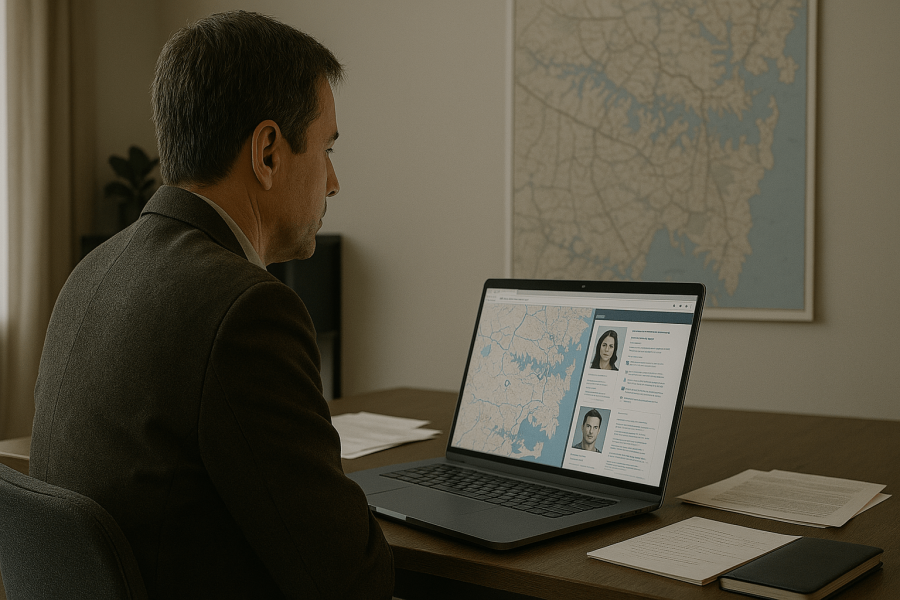Private Investigators Conduct Surveillance not Espionage
Private investigator-turned-journalist Jessicah Mendes recently penned an article for the ABC entitled “I was a private investigator, spying for insurance companies. Here’s what I found.” As an investigator myself, I was interested to read the article and learn from the corresponding Facebook comments section that I was, in fact, a “lowlife” and situated well below parking inspectors on the social totem pole. It’s not immediately clear from the comments where investigators sit in relation to journalists in the social hierarchy unfortunately.
In addressing some of the misconceptions expressed in the article, it seems logical to begin with the title. Firstly, private investigators don’t spy. Spying is an act of espionage, something Ms Mendes’ employer, the Australian Government, engages in despite its best attempts to cover it up.
Private investigators conduct surveillance, a lawful activity, for a range of legitimate purposes, including the investigation of insurance claims.
Perhaps Mendes believed erroneously that her investigator’s licence meant she was above the law and that is why she used a “darker-than-legal tint.” There’s ample evidence that her employer’s friends in the NSA and the GCHQ believe they are above the law and if you seriously doubt our government engages in illegal surveillance too well, there’s going to be little I can say to convince you. Heck, Australian Government intelligence agencies break the law without even trying.
Let’s hope Mendes didn’t engage in other unlawful activity. The vast majority of investigators do their best to act lawfully in difficult and fluid situations in which a range of complex legal issues can arise and most would be glad to know that someone who is willing to deliberately break the law is no longer in the industry. Unlike private investigators, government agencies have enormous resources with which to accurately manage compliance which makes their failure to do so successfully all the more problematic.
There is no better investigative principle than that expressed in the maxim that the greatest enemy of knowledge is not ignorance; it is the illusion of knowledge. Mendes may not be cognisant of the fact that people are generally really poor at recognising faces but an experienced investigator knows that this is the case. Mendes formed the opinion that the man she observed during a surveillance engagement was the claimant or the subject of the investigation. She then followed him for three days and then later discovered that she had the wrong person. Correct investigative protocol would have been to have provided the investigation manager with photographs of the subject so he or she could have endeavoured to make a determination about the identity of the person.
The claims officer said her evidence would “blow the case out of the water.” Self-evidently this is hyperbole, a concept with which I’m surprised Mendes is not au fait. Unless the claims officer is a medical expert (expert medical evidence would be required in any dispute over the claim), any evidence Mendes did gather (had she not followed the wrong subject) would simply be taken into account in a determination over the matter.
Mendes gives the example of a nurse whose “every move, gesture, kiss was noted down in a detailed report” by an investigator. Please refer to my earlier comment regarding hyperbole. It should be apparent to even the most facile observer imaginable that the only entity in Australia with the remotest prospect of documenting a person’s “every move” is Ms Mendes’ employer, the Australian Government. The government accesses your metadata without warrant, shares Australians’ data with other Five Eyes governments, facilitates backdoors into apps, monitors you through thousands of CCTV cameras while its allies forge secret relationships with the large tech monopolies, tap into fibre optic lines that carry internet traffic to scoop up all your data, imprison whistleblowers and generally do everything possible to incrementally bring about an Orwellian nightmare. All of this they do while being the worst possible managers of confidential information imaginable. Here are just a handful of examples from the dozens over recent years:
Link 1
Link 2
Link 3
Link 4
Link 5
Link 6
Link 7
But no, it’s the slightly pudgy, middle-aged investigator in a silver sedan, trying to earn a living juggling a video camera and a sandwich who is “intrusive” in capturing a few minutes of footage of a claimant per day. As an arm of government, the ABC appears to have a particular interest in painting the actions of investigators in a bad light:
If reports in Fairfax are correct then we know that there is interference in the operations of the ABC by the government. Could it therefore be that the final step in the government’s plan for a total surveillance state is to acquire a monopoly on investigative power and access to personal information by stealthily depicting surveillance as bad whilst gobbling up petabytes of private citizen’s data? Could the ABC be the propaganda tool by which the government is crafting this monolithic panopticon? I don’t write this as an ABC hater – I get more of my news from the ABC than any other single source but they have clearly gone down the wrong track here.
First Mendes suggests her surveillance of a claimant was a waste and indicates that she felt much of the work she did was a waste. She then seems to change tack and suggest surveillance that documents a person’s movements is intrusive. Perhaps she thinks it is an intrusive waste? What then does she make of the acres and acres of warehouses that are now storing servers containing private citizens’ data, accessed by our government 333,980 times in 2016?
What is a waste is a civil right that cannot be enforced. What is the point of having a contract if one can’t enforce the rights one gains by entering into the agreement? Do we forgive debtors what they owe us in case we offend them in endeavouring to recover the debt? Do we say insurers cannot enforce their rights because of their size? What if the insurer is acting on behalf of the taxpayer who underwrites the risk? What about an individual who is having contractual rights infringed – can he or she use investigators to prevent the risk of insolvency?
Just like in any other profession, there are of course instances where rogue operators do the wrong thing. But to suggest that surveillance-aware claimants are subject to “a vicious cycle of increased surveillance and paranoia” makes no sense whatsoever. Why would anyone deliberately place a surveillance-aware person under more and more surveillance? If the subject of the surveillance is aware he or she is being watched, obviously the subject is not going to be observed to do anything that puts his or her claim at risk. If a subject is surveillance-aware, the correct protocol is either to cease surveillance entirely, consider using multiple operatives so as to minimise the likelihood of suspicion on the part of the subject or recommence surveillance weeks or months later to determine whether the subject still appears to be wary. There is no benefit to anyone in following a surveillance-aware subject.
This is the whole point of surveillance. The vast majority of persons subject to surveillance never know they are being watched. This is why it can be effective and why it has to be done covertly.
Mendes writes, “For anyone thinking the above (countersurveillance) tactics will outwit surveillance, they will not help you. Investigators adjust their tactics to compensate.” I’m not sure what this means. Unlike the government, investigators only have a camera and their wits to try to learn the truth. If we can’t see it, we can’t document it.
In discussions around privacy, people fail to recognise that privacy is not one thing but two. Privacy is the protection against the accessing of information relating to citizens and, secondly, the protection against the accessing of information relating to governance.
As an investigator, I know that there have been and continue to be significant protections against citizens accessing information relating to other citizens. In the counter-terrorism era, there are now significant and increasing protections against citizens accessing information relating to governance, especially as it relates to the nebulous concept of national security. Finally, in the digital age, there is now virtually no protection against the accessing of information relating to citizens by government. As former Greens senator Scott Ludlam said of the metadata collection bill in 2015, “This legislation betrays a mindset that inverts the power relationship between the state and the individual.”
My belief is that we may as well give up fighting against the government with respect to the increase in their powers to access information relating to citizens – that battle has been lost. What we need to do to regain the balance of power is to fight for the right of citizens and private entities to access information relating to governance and relating to fellow citizens. A good start would be empowering investigators and those who seek transparency and rejecting the proposition put forward by those in the government that they alone deserve to know the truth.
Incidentally, published on the same day as Mendes’ article was an article detailing the government’s latest failure to manage access to private citizen’s data, with the My Health website crashing as Australians sought to avoid losing the last vestiges of control over their personal data.
You can read more about our firm’s experience here.



